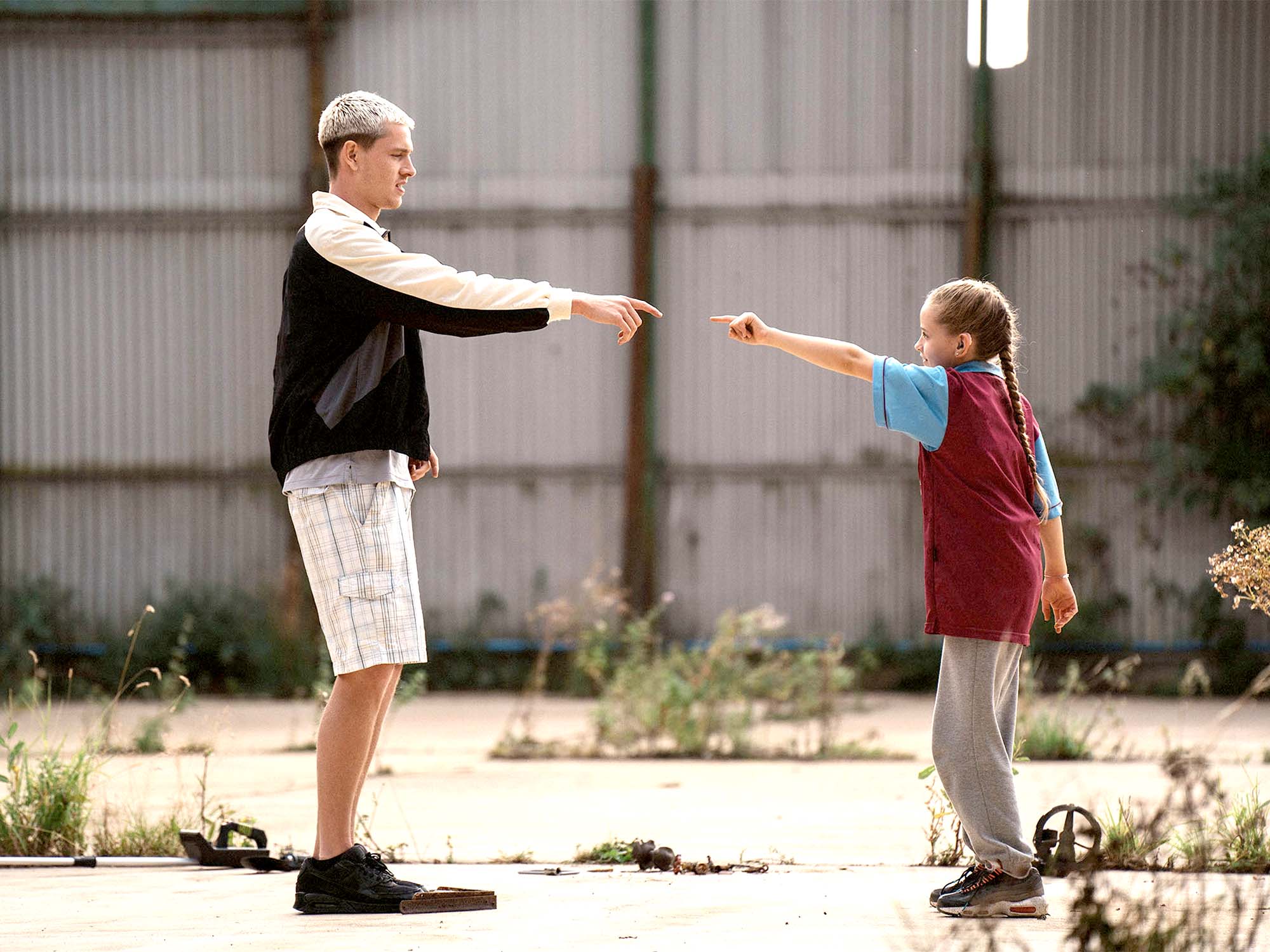
Scrapper review – a charming, effervescent story about grief
Charlotte Regan has long been a promising talent on the shorts and music video circuit, and makes the leap to features with Scrapper – a charming, effervescent story about grief and parenting set on a housing estate in East London that turns the kitchen sink genre on its head, crafting a brightly-coloured world of possibility and hope.
12-year-old Georgie (newcomer Lola Campbell) lives on her own, following the recent death of her mother. She’s crafted an elaborate ruse to fool social services into thinking she’s living with her non-existent uncle, and spends her time with best mate Ali (Alin Uzun) nicking bikes to sell as scrap in order to put food on the table. She’s hard as nails and doesn’t need any help from anyone – so when her estranged dad Jason (Harris Dickinson) turns up on her doorstep, fresh off the plane from Ibiza where he was working as a club rep, Georgie doesn’t want anything to do with him.
She’s particularly resistant to the idea of Jason parenting her, arguing that she was doing just fine before he turned up. Jason isn’t thrilled about the new arrangement either, still a kid himself at heart, but he sticks around, attempting to make a go of it despite Georgie’s loud protestations.
Comparisons to Charlotte Wells’ Aftersun – another recent UK debut about a preteen connecting with her dad – may seem appropriate, but while Wells’ film blurred the line between memory and reality with a protagonist attempting to make sense of her father’s death as an adult, Scrapper is perhaps a more matter-of-fact narrative. Georgie’s grief is swallowed deep down, and while she clearly misses her mum, it seems she’s either unwilling or unable to process the loss, instead opting to make herself impervious to the cruelties of the world around her. For working class people, grief can often be a luxury. Life goes on, and you’ve got to make a living somehow.
She retreats into her own world, which is depicted through snapshots of anthropomorphised spiders and talking head interview footage of the local people that know her. Meanwhile, her big project is constructing a large structure out of scrap metal in her mother’s old bedroom, that she keeps locked at all times. These flourishes of magical realism temper the rather grim reality of Georgie’s situation, in which she’s been failed by the state repeatedly and left to fend for herself, as does the vibrant cinematography, a refreshing change of page from the pervasive grimness with which British culture usually depicts working class stories.
Scrapper feels most reminiscent of a Jacqueline Wilson story – required reading for any British tween – and Campbell plays Lola with a spiky determination which stays just the right side of precocious. Her chemistry with Dickinson is delightful as the pair size each other up and attempt to navigate their strange new relationship (one scene in a local train station is a particular highlight) and Dickinson adds to the growing pile of evidence that he’s a true generational talent, all big, vulnerable eyes and moody scowls. While Scrapper might not have the most original conceit, it’s a sweet, heartfelt take on the difficulty of father-daughter bonding, and how to be soft when you’ve tried to make yourself hard to avoid getting hurt.
Little White Lies is committed to championing great movies and the talented people who make them.
By becoming a member you can support our independent journalism and receive exclusive essays, prints, weekly film recommendations and more.
Published 24 Aug 2023































![iFi's GO Bar Kensei Dongle DAC Supports K2HD Technology With Some Samurai Swagger [Updated] iFi's GO Bar Kensei Dongle DAC Supports K2HD Technology With Some Samurai Swagger [Updated]](https://i0.wp.com/cdn.ecoustics.com/db0/wblob/17BA35E873D594/33FF/45A11/QTXOLJR4xDKSNMMk2WlTgjaIlvSgcYpeU1xJzUwIoYs/ifi-go-bar-kensei.jpg?w=768&ssl=1)
























